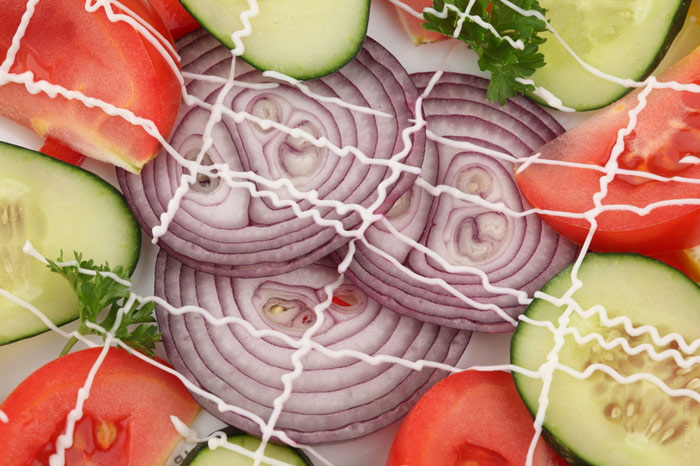5 Unhealthy Foods Your Kids May Eat
Some of the products and substances which are considered to be harmful can provide invaluable benefits to the child’s body.

There are a variety of useful products for children. But there is another category of products that are banned unfairly. Maybe they should not be given to your child every day, but you should not completely exclude them from the diet either.
Mayonnaise
Mayonnaise from the supermarket is not helpful to anyone, but if you add one teaspoon of homemade mayonnaise to the salad, nothing terrible will happen. In fact, mayonnaise includes an egg yolk, vegetable oil and mustard powder (with variations, depending on the recipe). Small amounts of this sauce can greatly improve the taste of cooked vegetables that children are not usually happy to eat. This does not mean that you need to fill all the dishes with homemade mayonnaise, but it is not necessary to completely exclude it from the child’s menu as well. Remember that homemade mayonnaise has an extremely short shelf life (not more than 2-3 days in the refrigerator). Since it consists of raw egg yolks, it is not recommended to give this product to children under three years. Use only the freshest eggs with undamaged shell, otherwise the risk of getting salmonella increases significantly.
Ketchup
Tomatoes can be blanched and turned into a puree using a blender; next, you should add a little salt, lemon juice, and spices – and your homemade ketchup is ready! This sauce is very useful because tomatoes and their products are rich in lycopene. This compound is useful in the prevention of heart disease, loss of eyesight, inflammatory processes and even cancer. Like in the case with mayonnaise, you should not add homemade ketchup to all dishes; however, you may add a few spoons to improve the taste of dishes for children.
Butter (and other foods rich in cholesterol)
What is harmful to a grown-up person is not always harmful to the child’s body. A growing child’s body just needs foods that contain cholesterol (egg yolks, butter, and fatty fish). This substance is involved in the production of hormones; it participates in the synthesis of vitamin D, the development of bones and other highly important processes. Animal fats cannot be excluded from children’s diet. It is better to reduce the amount of fast carbohydrates. Think of the Eskimos people, who eat a lot of seal oil or the Indian tribes whose diet is rich in cholesterol. Without exception, they do not suffer from obesity. However, this does not mean that the mentioned products are useful to children’s parents.
Salt
Salt (sodium chloride) is involved in the regulation of many processes in the human body, for example, in the normalization of blood pressure. Elderly people with high blood pressure should avoid excessively salty foods, but a child on a low-salt diet becomes apathetic and listless. Of course, it is not necessary to feed your kid with salted nuts and chips, but you should add salt to soup or porridge. Ideally, one should use only sea salt for cooking. It contains iodine, which prevents us from intellectual disabilities, such as mental retardation.
Fast food
Fast foods are different: if your child takes a sandwich of whole wheat bread with natural boiled meat and vegetables, carrot sticks, sliced cheese, or apples to school, this food can also be called “fast”, but it is hardly harmful.
The above mentioned facts lead us to the following conclusion: cook by yourself, dose the amount of foods, and then even seemingly unhealthy foods will become useful. If a child refuses to eat homemade mayonnaise or ketchup and demands products from a supermarket, it means that you have already fed him/her with sauces from the shop, and most likely, you consume them regularly. Stop doing this, and the child will gradually get rid of this habit.
